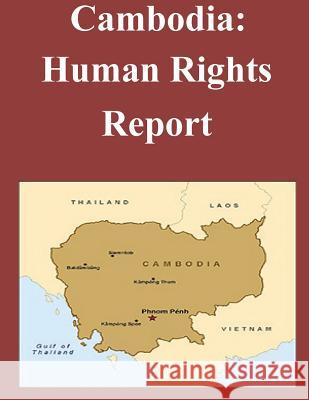Cambodia: Human Rights Report » książka
Cambodia: Human Rights Report
ISBN-13: 9781502822550 / Angielski / Miękka / 2014 / 34 str.
Cambodia is a constitutional monarchy with an elected parliamentary form of government. In the most recent national elections, held in 2008, the Cambodian People's Party (CPP) won 90 of 123 National Assembly seats. Most observers assessed that the election process improved over previous elections but did not fully meet international standards. The CPP consolidated control of the three branches of government and other national institutions, with most power concentrated in the hands of Prime Minister Hun Sen. Security forces reported to civilian authorities. A weak judiciary that sometimes failed to provide due process or a fair trial procedure continued to be a leading human rights problem. The courts lacked human and financial resources and were subject to corruption and political influence. Their ineffectiveness in adjudicating land disputes that arose from the government's granting of economic land concessions, including to ruling party officials, fueled sometimes-violent disputes in every province. The continued criminalization of defamation and disinformation and a broad interpretation of criminal incitement constrained freedom of expression. Members of the security forces reportedly committed arbitrary killings. Prison guards and police abused detainees, often to extract confessions, and prison conditions were harsh. Human rights monitors reported arbitrary arrests and prolonged pretrial detention. The government at times interfered with freedom of assembly. Corruption remained pervasive, governmental human rights bodies reportedly were ineffective, and discrimination and trafficking in men, women, and children persisted. Domestic violence and child abuse occurred, and education of children was inadequate.
Zawartość książki może nie spełniać oczekiwań – reklamacje nie obejmują treści, która mogła nie być redakcyjnie ani merytorycznie opracowana.











